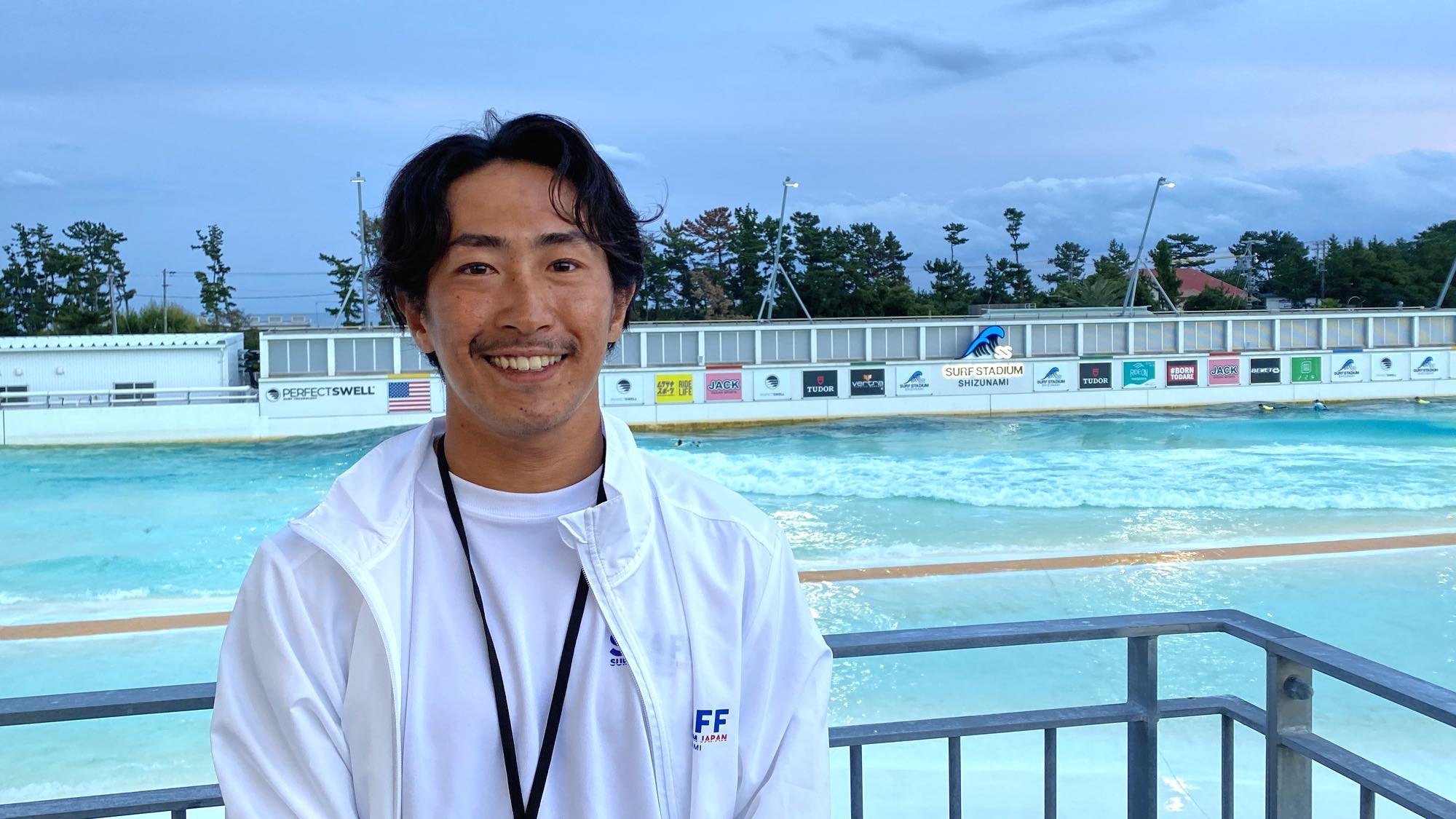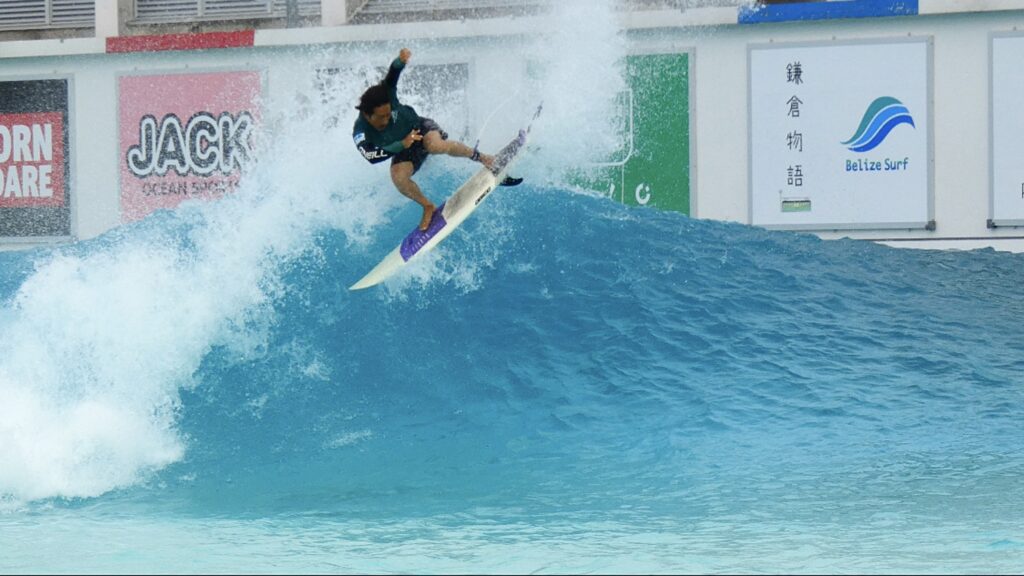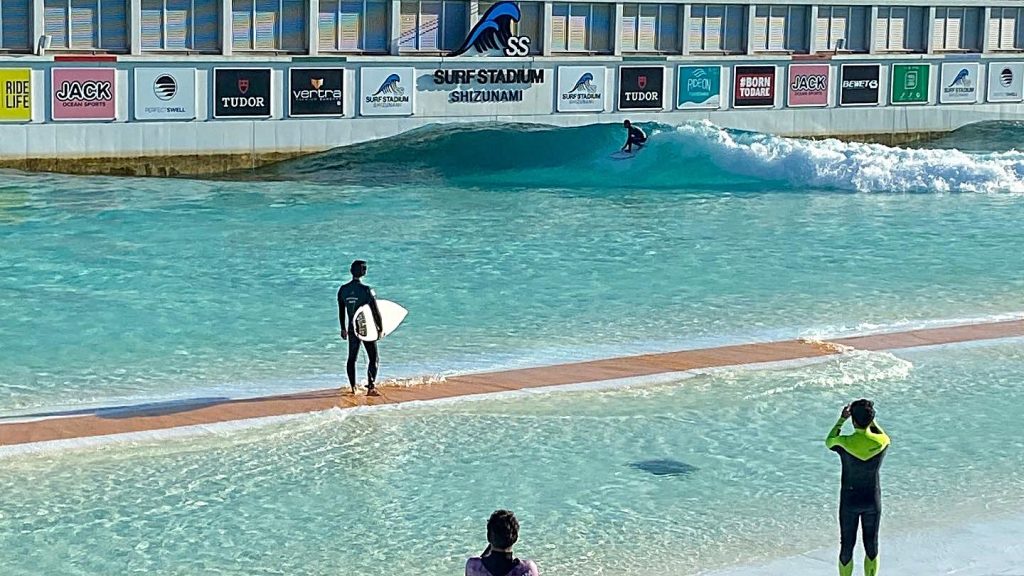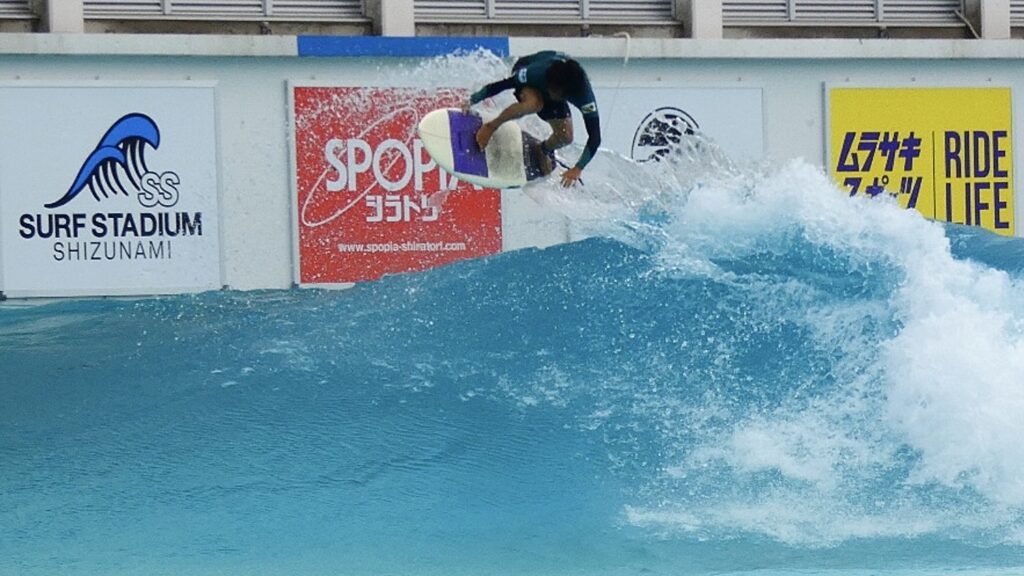Employee of the Month: Engineer Joji Mori at Surf Stadium Japan

Joji “George” Mori learned to surf at age five and studied in Australia for several years, surfing and learning the ins and outs of engineering. In the pool he’s a snappy goofyfoot with solid foot placement and a high make ratio for barrels and airs. But speaking with George you realize he’s just a surf-crazed grom who grew up at the beach and wants to be in the water as much as possible. During WavePoolMag’s visit to Surf Stadium Japan, we spoke with George to gain insight into how this pool functions, both on a technical level as well as on a community level for the surfers here in Japan.
Every surfer-slash-engineer’s dream job is at a wave pool. Can you share with us how that happened?
I think when I was seven years old, I was watching wave pool videos on YouTube. I was quite interested in the technology of the waves and stuff so later I was trying to find a university where I could learn the wave technology thing. So then I found out, okay, there is no university for that here in Japan, so I looked at doing an overseas thing. Then I thought about Australia, and I just decided to go to Australia.
How was that coming from Japan, which has a very unique surfing culture too, going someplace where the surfing culture is older and more commonplace? Did you have any kind of culture shock when you were there?
Not really. I think in Japanese surf culture, they have a lot more of, like, a local thing. It’s like, you have to tread more lightly with the locals here. But in Australia I feel like everyone is kind of welcoming, like “hey, welcome.” So I felt really comfortable surfing there.
So is there, is there localism in Japan?
Yeah, a lot. But just in some places.

So you studied in Australia. You found this this kind of dream job. Would you call it a dream job or is that just me being enthusiastic and over the top?
Absolutely. This is a dream job because I am to relate to wave technology. So I’m glad to be working here. I was studying mechanical engineering and fluid mechanics, thermodynamics and the like. And now I’m part of the maintenance team here.
What is it that you do in your daily job?
So in the morning, I check to make sure that the machine is working well. Then after that, I go to the operations tower where they operate the waves. Then I check that the wave is good enough to surf. Then during the day I’m again checking the waves in the tower and also checking the filtration system.
I understand that in Japan you have to meet filtration standards than it would be in the US or Australia. Yeah. So did you. You had to build a custom filtration.
Unfortunately, no, because I arrived here in October 2021. By that time, the wave machine was already built, so I couldn’t participate in the construction. However, I have learned a lot from people’s experiences and I manage the filtration now.

So instead of just drawing waves on your notebook like most surfers, have you taken any notes or started designing machines?
Yes, I have taken notes. I’m always observing and learning about designing and improving machines. The way we have coded our system is impressive. For the first time, I felt like we achieved something great with machine-generated waves. However, I have seen some recent videos of other systems that are quite interesting.
Okay, let’s talk about air sections. How does that work? It’s always amazing to see those clips on Instagram.
I can’t disclose too much, but it involves creating a pressure difference on both sides of the wave, which allows for a jump-like section to be formed.
So they generate the air section by firing the wave from the opposite side?
Yes, exactly. They operate both sides simultaneously to create those jump sections. I really like the barrel wave and the ramp wave. Those are my favorites. The barrel wave is a kind of trainer wave, and the ramp wave is great for practicing. There’s also a dream wave that I always wanted to surf.

So are you able to create a wave and ride it?
Yes, indeed. But it’s quite rare for me to get the chance since I’m usually busy with work. I would love to do it more often if the company allows me.
What does a good day at work look like for you?
Well, in the summertime, it’s quite hot, and everyone can enter the pool to cool off. From a work standpoint, a sunny day is great because I can focus on my job. Rainy days are not ideal since I don’t want to check the filtration system in bad weather. Spring and autumn are particularly beautiful here.
Disneyland has an underground city beneath it, to run everything. When I am here at the wave pool, I hear the noise, I see the waves. Is there any such secret to Surf Stadium Japan that you can share?
No, but for filtration, all I can say is that we have a machine cleaning the water all the time. It’s a simple thing, but it’s quite technical. So when waves come, the water hits the wall and under there we have a sort of pipe. Then the pipe brings the water into the filtration system.
I was hoping for something more exciting, like you’ve got unicorns on treadmills to power the waves.
No.
Related Coverage
